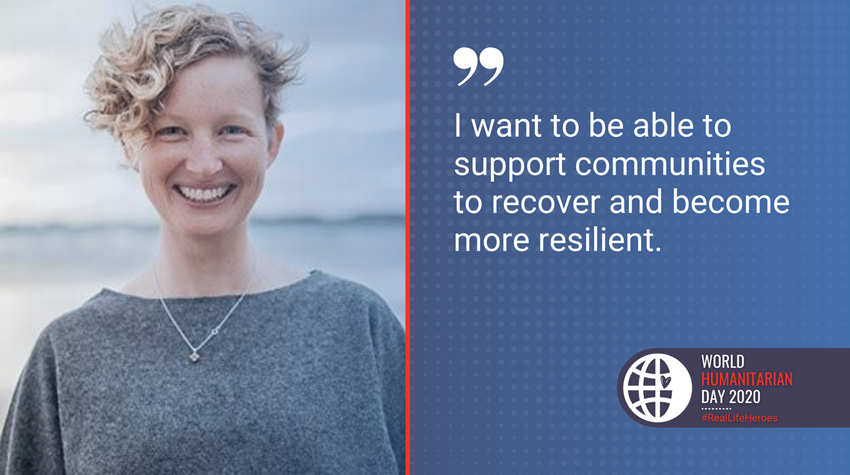By joining the RedR Australia Roster, Phoebe wants to use her skills in water, sanitation and hygiene (WASH) to help communities become more resilient when disaster strikes.
Tell me about your role at GHD
I work in GHD’s International Development Assistance Team, working in leadership and technical roles, mostly in the water and sanitation sector. My experience in the development sector has primarily focused on the Pacific region, but right now, I am also working as the Knowledge and Learning Manager for the Water for Women Fund.
Water for Women is the Australian Government’s flagship WASH program, improving the health, gender equality and wellbeing of communities across the Asia Pacific region. I am supporting fund partners to deliver innovative WASH programs in 15 countries with a focus on gender equality and social inclusion to ensure we leave no one behind.
Why did you join the RedR Australia Roster?
I want to apply my skills in the development sector to a humanitarian context. We are going to face more frequent and severe climate change-induced disasters in our region and I want to be able to support communities to recover and become more resilient - the RedR Australia Roster provides an avenue for that.
How did you get involved in the humanitarian sector and humanitarian engineering?
My experience in the sector is in international development but this overlaps with humanitarian engineering, particularly in the water and sanitation sector when working to address issues of water scarcity and security.
Why do you think it is important for engineers to take part in humanitarian projects?
Engineers are essential in the function of our society. In a humanitarian context engineers provide invaluable skills ranging from sense-making and ownership of outcomes with human-centred design approaches, through to delivery of essential infrastructure in emergency settings.
The benefits of working in the humanitarian sector are two-fold. Engineers come back to their day jobs as stronger and well-rounded professionals who are highly skilled at managing complexity, and they are humbled by the learning experience from colleagues, stakeholders and communities they are working with in the field.
What would you say to someone thinking about getting involved in the humanitarian sector?
It is very rewarding to be able to contribute positively and support our neighbours in times of crisis or prepare for such times. There is so much to gain and to give through pursing work in the humanitarian sector.
Find out more about the RedR Australia Humanitarian Roster and how to join.


